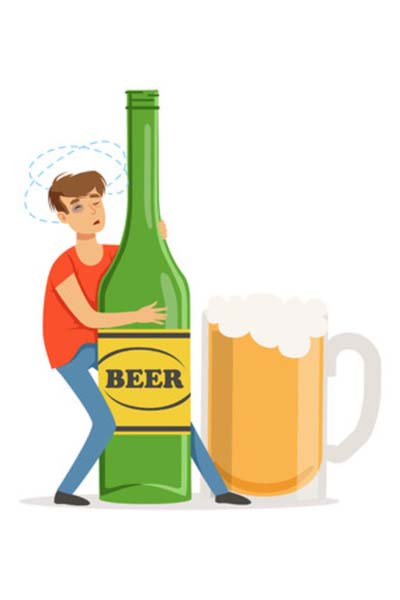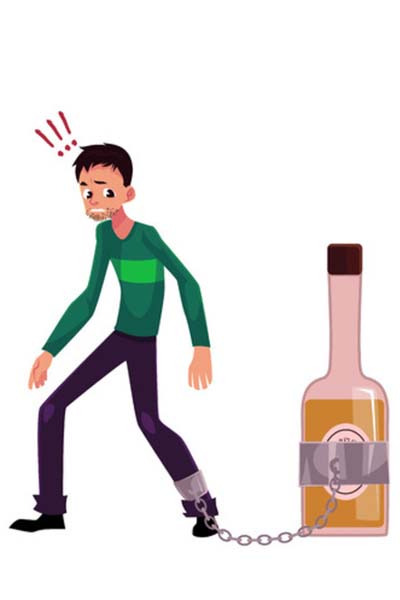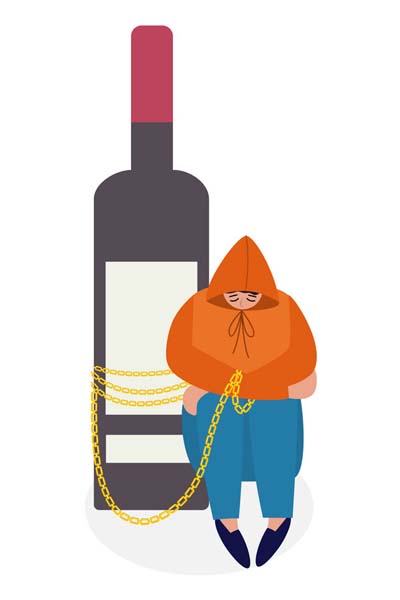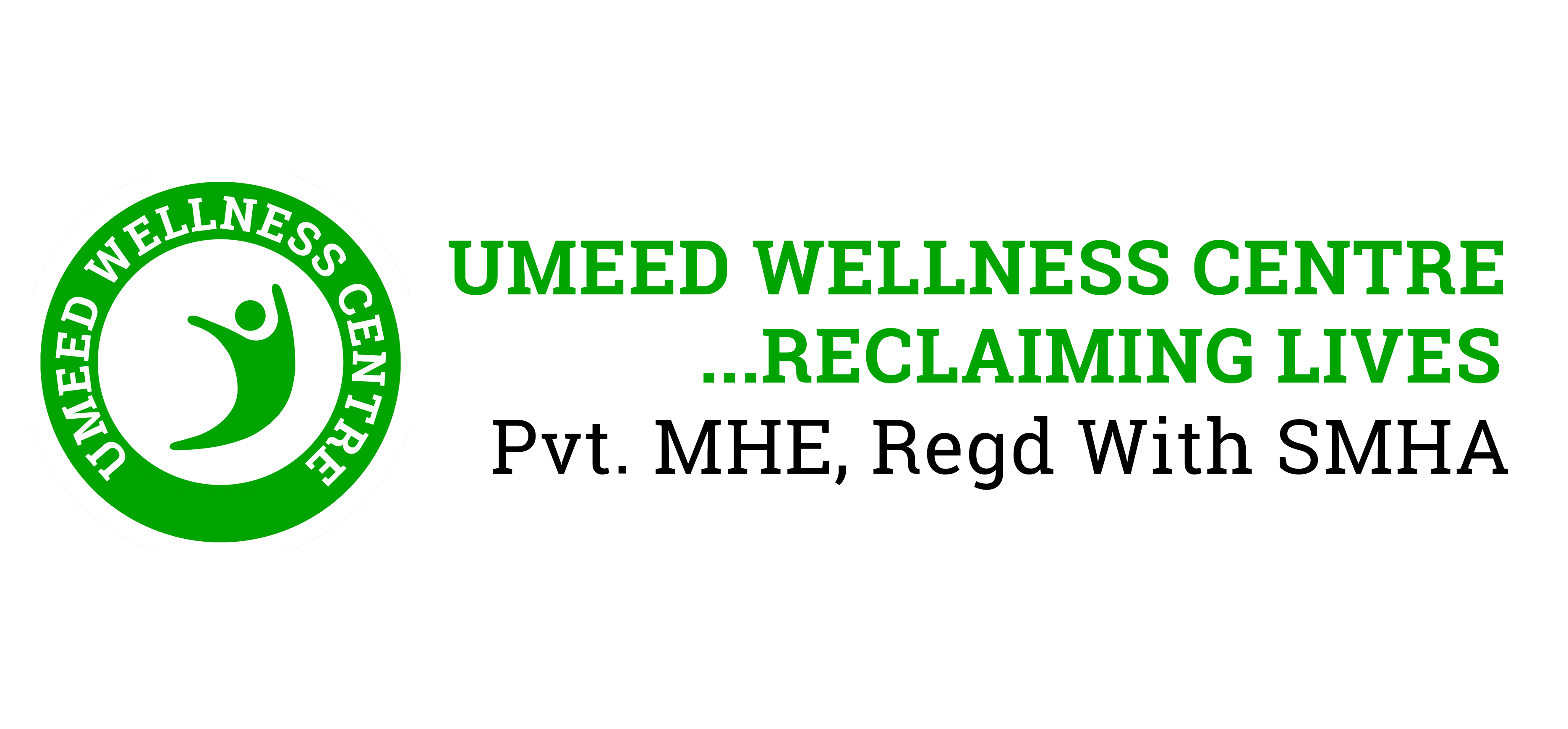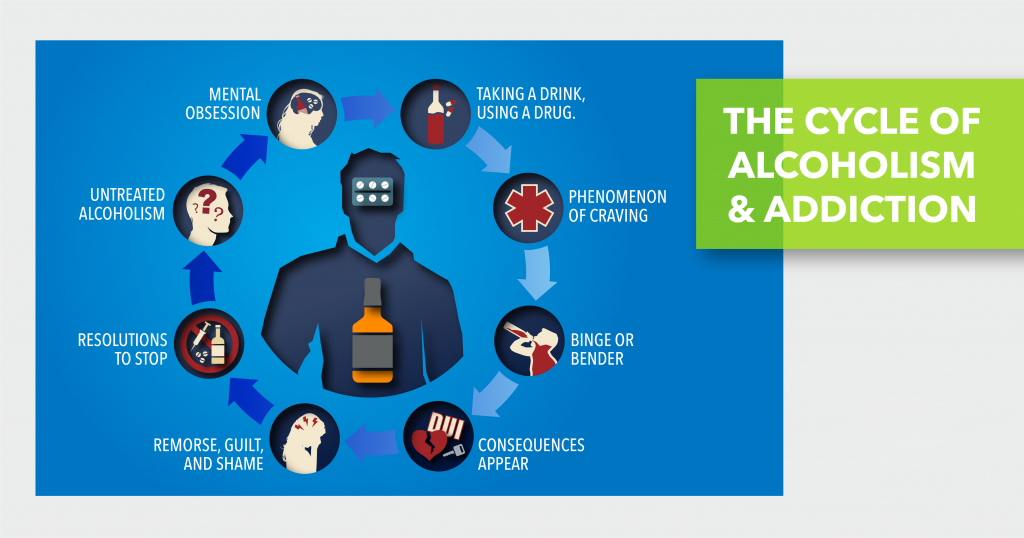Alcohol intoxication: History of recent alcohol use
Clinical presentation: smell of alcohol on breath, signs of peripheral vaso-dilatation (warm extremities, conjunctival congestion), hyperdynamic circulation – increased pr, elevated systolic and normal diastolic BP, slurred speech, ataxic gait and disinhibition or somnolence (in higher doses)
Breathalyser can confirm recent alcohol ingestion
Alcohol withdrawal syndrome
Occurs following cessation or reduction of regular heavy alcohol use, typically within 4 to 6 hours and may persist for between 10 to 14 days
Clinical presentation:Alcohol withdrawal is classified into:
- Uncomplicated withdrawal – autonomic hyperactivity (increased pulse rate and blood pressure, sweating), tremors (fine or coarse, depending on severity of withdrawal), insomnia, nausea or vomiting, psychomotor agitation and anxiety
- Complicated withdrawal – hallucinosis, seizures and delirium tremens
What are the treatments for alcohol use disorder?
Most individuals who have alcohol use disorder (AUD) can benefit from treatment and therapy. Medical treatment that includes medications and behavioral therapy
For many people, a combination of both gives better results. People undergoing alcohol use disorder (AUD) treatment may also benefit from participating in a support group such as Alcoholics Anonymous (AA). If you have both AUD and a mental condition, you should get treatment for both.
Some individuals with alcohol use disorder (AUD) may require intensive therapy or treatment. This includes rehabilitation in a residential treatment program (rehab). There the treatment is highly controlled and structured. A variety of behavioral interventions are involved. This may also include detoxification (medical treatment to remove alcohol) and/or medications to treat AUD.
What behavioral therapies can treat alcohol use disorder?
Alcohol counseling is another term for Alcohol use disorder (AUD) behavioral therapy. Part of this is to work with a health care specialist to identify and address habits that contribute to heavy drinking.
Motivational enhancement therapy: Helps in developing and scaling up the motivation to change your Alcohol consumption habits. It consists of four sessions in a short period of time. Therapy begins with acceptance, and the therapist works with you to develop a strategy that builds your confidence.
Cognitive-behavioral therapy: Cognitive behavioral therapy (CBT) is a therapeutic method that helps you identify negative or unhelpful thought and behaviour patterns. CBT seeks to help you identify and explore the ways in which your thoughts and feelings influence your behavior that affects your actions.
Family counselling: This involves the spouse as well as other family members. It can help in the restoration and improvement of family relationships.
Brief interventions: These are short, face-to-face or small group therapy sessions. It consists of one to four sessions. The counselor informs you about your alcohol consumption pattern and drinking habits and the risks associated with them.
Is treatment for alcohol use disorder effective?
Treatment of alcohol use disorder (AUD) is beneficial for most people. However, recovering from a problem with alcohol use is a lifelong process, and you can relapse (start drinking again).
Relapse should be seen as a temporary setback, and you should keep trying. Many people try to reduce or stop drinking, experience a setback, and then try again.
A relapse does not rule out the possibility of recovery. If you do relapse, it is important that you return to treatment as soon as possible so that you can learn more about your relapse triggers and strengthen your coping abilities. It can help you succeed next time.
Always remember that you are not alone in this battle. We are with you!
